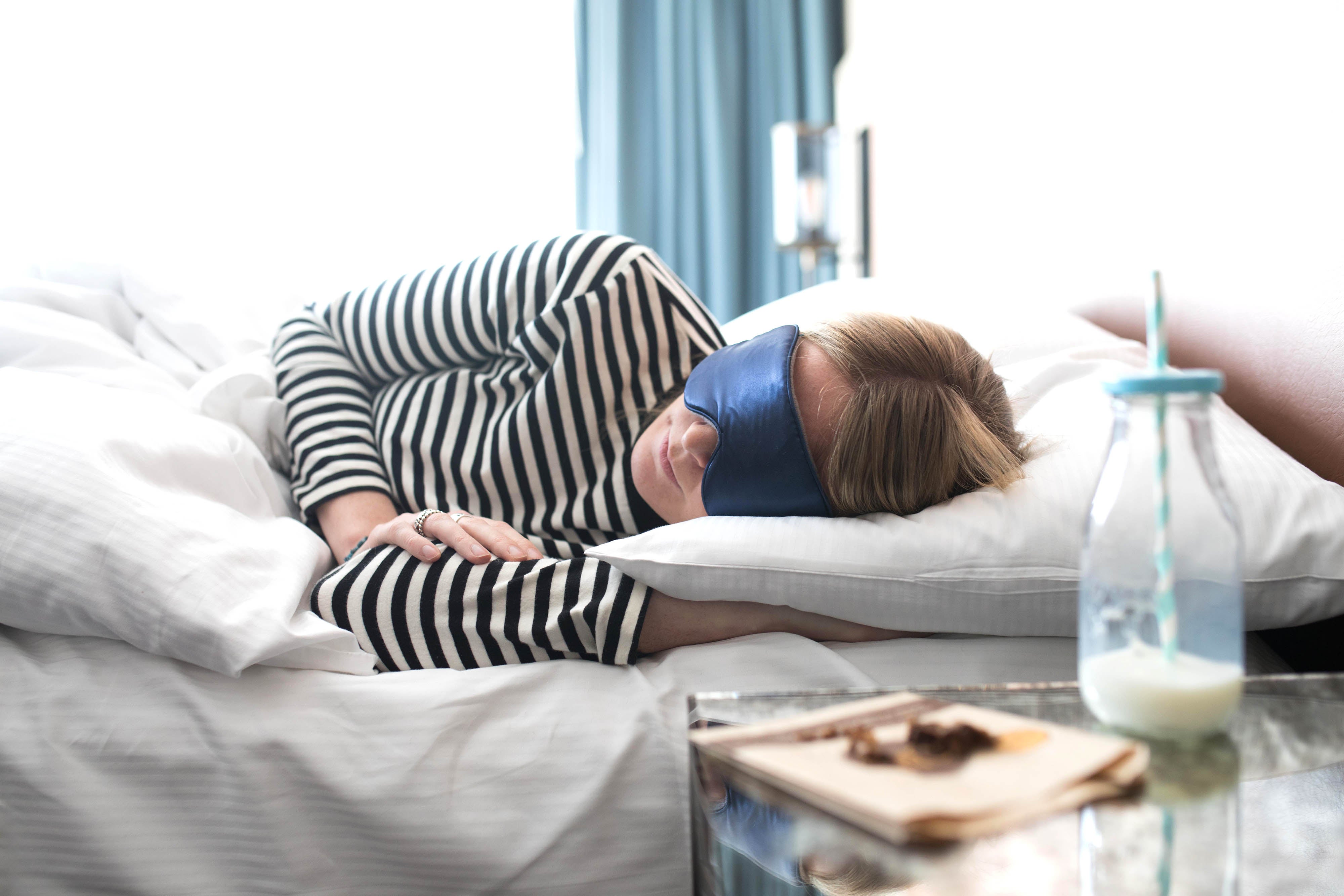App could replace sleeping pills in NHS treatment for insomnia
A predicted 800,000 people could benefit, officials said.

Your support helps us to tell the story
From reproductive rights to climate change to Big Tech, The Independent is on the ground when the story is developing. Whether it's investigating the financials of Elon Musk's pro-Trump PAC or producing our latest documentary, 'The A Word', which shines a light on the American women fighting for reproductive rights, we know how important it is to parse out the facts from the messaging.
At such a critical moment in US history, we need reporters on the ground. Your donation allows us to keep sending journalists to speak to both sides of the story.
The Independent is trusted by Americans across the entire political spectrum. And unlike many other quality news outlets, we choose not to lock Americans out of our reporting and analysis with paywalls. We believe quality journalism should be available to everyone, paid for by those who can afford it.
Your support makes all the difference.A sleep app which offers a digital six-week treatment programme could be used to replace sleeping pills for people suffering with insomnia.
The proposed Sleepio app uses an artificial intelligence (AI) algorithm to provide individuals with tailored cognitive behavioural therapy for insomnia (CBT-I).
The National Institute for Health and Care Excellence (Nice) said it would save the NHS money as well as reducing prescriptions of medicines such as zolpidem and zopiclone, which can be dependency forming.
Their economic analysis found that healthcare costs were lower after one year of using Sleepio, mostly because of fewer GP appointments and sleeping pills prescribed.
The app provides a digital six-week self-help programme involving a sleep test, weekly interactive CBT-I sessions and keeping a diary about their sleeping patterns.
The sessions focus on identifying thoughts, feelings and behaviours that contribute to the symptoms of insomnia. Cognitive interventions aim to improve the way a person thinks about sleep and the behavioural interventions aim to promote a healthy sleep routine.
Nice predicts that up to 800,000 people could benefit from using Sleepio in England.
The programme is designed to be completed in six weeks but people have full access to the programme for 12 months from registration.
This allows people to complete the sessions at their own pace and revisit sessions. Participants can also access electronic library articles, online tools and join the online Sleepio user community for support.
A daily sleep diary helps users track their progress and the programme tailors advice to individuals. Users can fill in the diary manually or the data can be automatically uploaded from a compatible wearable tracking device, like an Apple watch or Fitbit.
Clinical evidence presented to Nice’s medical technologies advisory committee from 12 randomised controlled trials showed that Sleepio is more effective at reducing insomnia than sleep hygiene and sleeping pills.
Jeanette Kusel, acting director for MedTech and digital at Nice, said: “Until now people with insomnia have been offered sleeping pills and taught about sleep hygiene, so our committee’s recommendation of Sleepio provides GPs and their patients with a new treatment option.
“Our rigorous, transparent and evidence-based analysis has found that Sleepio is cost-saving for the NHS compared with usual treatments in primary care. It will also reduce people with insomnia’s reliance on dependence-forming drugs such as zolpidem and zopiclone.
“This is a good example of where a digital health technology can help the NHS. The evidence has shown using Sleepio reduces the number of GP appointments people with insomnia need and will also cut the number of prescriptions for sleeping pills delivered by pharmacists.”
The cost of Sleepio is £45 (excluding VAT) per person, however Nice say that Sleepio is cost-saving compared with usual treatment in primary care. This is based on an analysis of primary care resource use data before and after Sleepio was introduced in nine GP practices.
The independent Nice committee has recommended a medical assessment should be done before referral to Sleepio during pregnancy and in people with comorbidities. Pregnant women should undergo an assessment because insomnia can mimic other conditions like restless legs, or it could be a consequence of undiagnosed sleep apnoea.
They have also recommended more research or data collection to show how effective Sleepio is compared with face-to-face CBT-I.